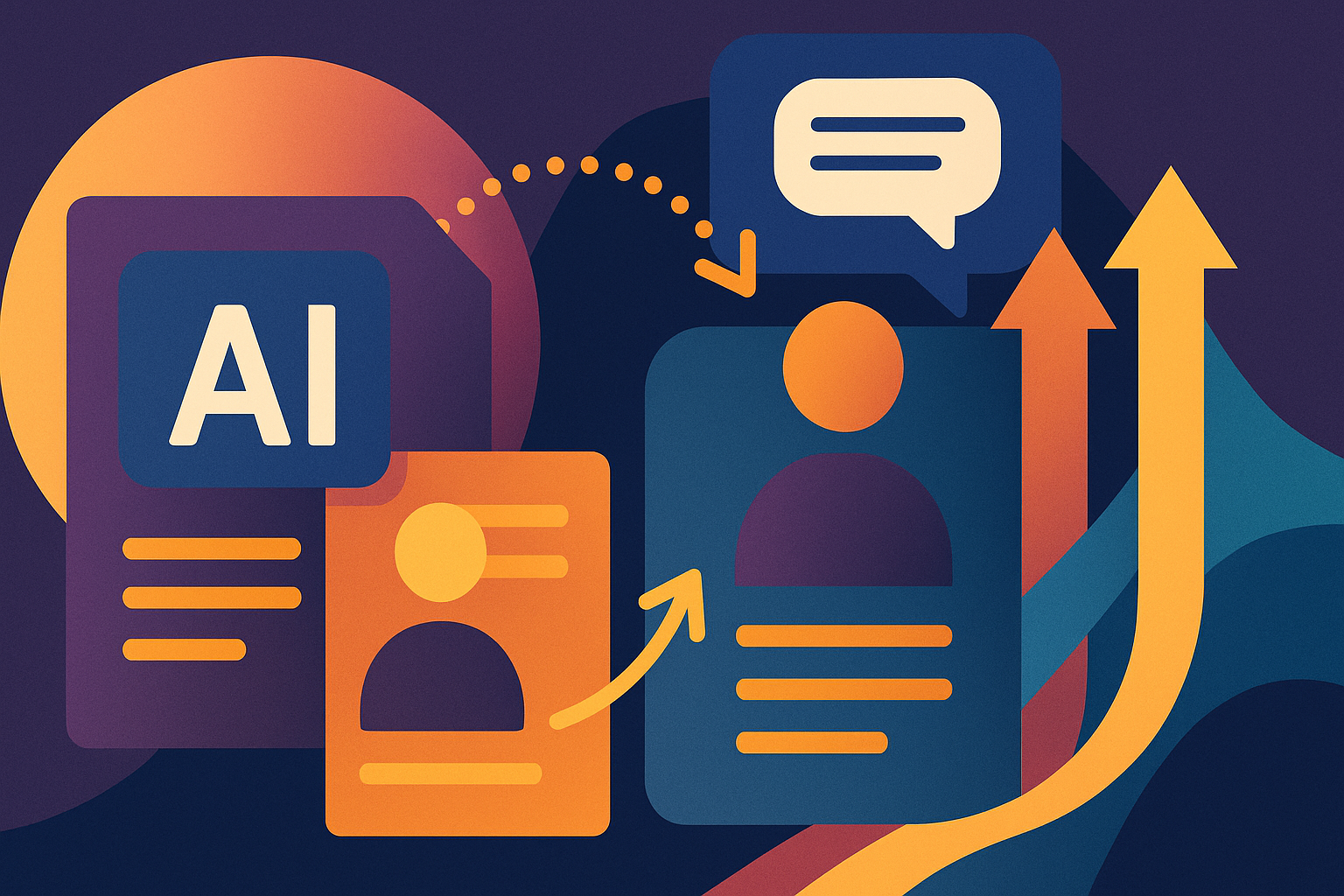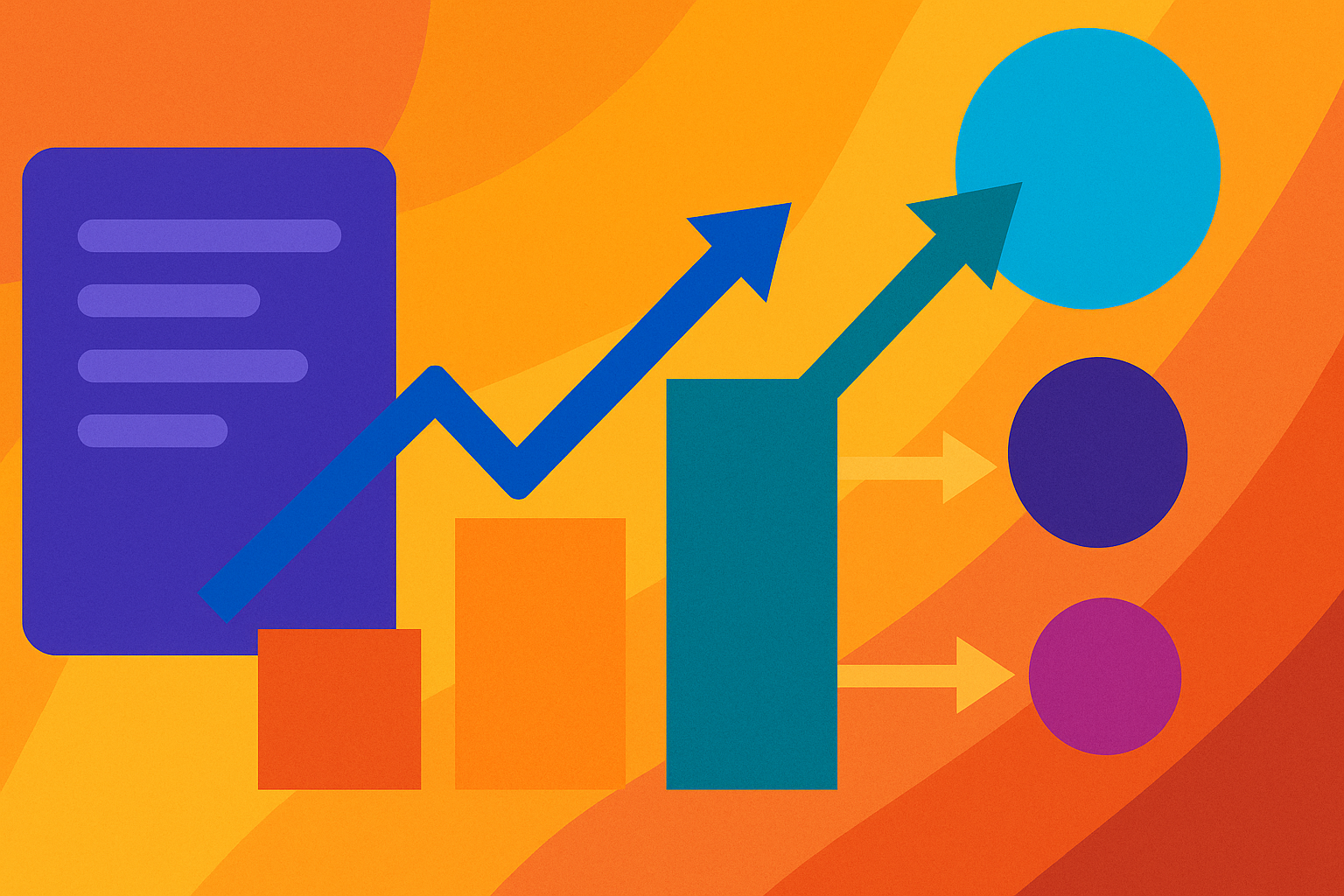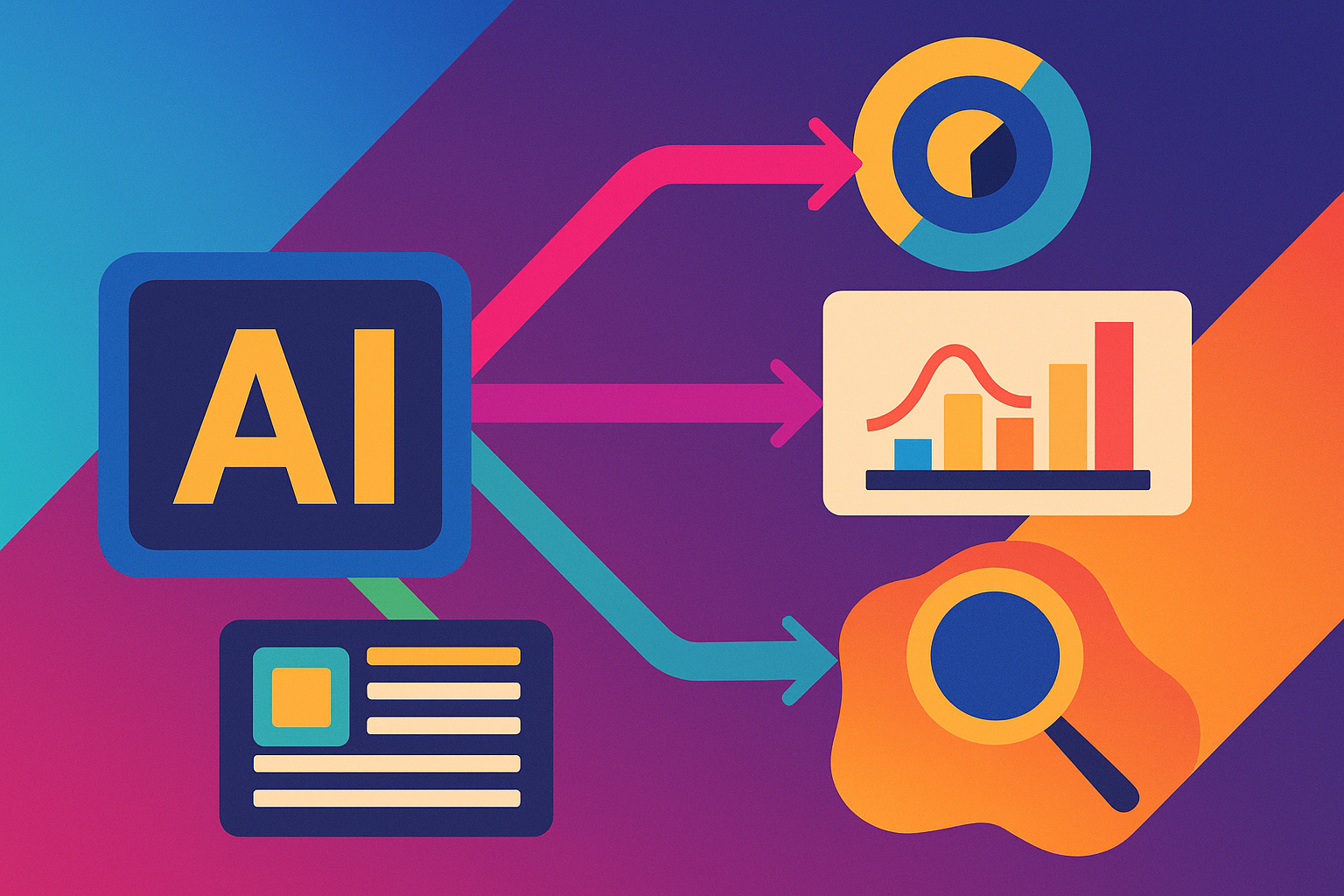AI-generated search features, like Google’s AI Overviews, are changing the way people consume information online. But as these features pull information from across the web, a key question arises:
Are AI Overviews citing more AI-generated content than human-written content?
At Theia Media, we’ve been exploring this question because it has major implications for SEO and brand visibility. If Google’s AI-driven summaries are increasingly citing AI-generated content, we could be watching the early stages of an AI-to-AI feedback loop that reshapes the web.
How We Looked at the Data
Researchers analyzed one million search engine results pages (SERPs) that displayed Google AI Overviews. For each SERP, they extracted the top three cited links - 1.9 million URLs in total - and cross-referenced them with a database of 500,000 pages.
Each page was then run through an AI content detection tool to categorize it as:
- Pure AI
- Pure human
- Mixed AI + human (with varying levels of AI assistance)
This gave us a clear picture of how much AI-generated content is actually being cited by AI Overviews.
What Was Found: AI Content Dominates the Citations
Here’s what the analysis revealed:
- 3.6% of pages cited in AI Overviews were pure AI.
- 8.6% were pure human.
- 87.8% were a mix of AI and human content.
Within that mixed group:
- 11.2% showed minimal AI use (1 - 10%)
- 44% showed moderate AI use (11 - 40%)
- 24.7% showed substantial AI use (41 - 70%)
- 7.9% showed dominant AI use (71 - 99%)
This means that almost 9 out of 10 pages cited by AI Overviews contain some form of AI-generated content.
When compared to a separate analysis of 900,000 new pages across the web (which showed only 2.5% pure AI and 25.8% pure human), AI Overviews appear to be drawing disproportionately from AI-generated or AI-assisted content.
What This Means: AI Citing AI
We’re potentially witnessing a self-reinforcing cycle:
- Creators increasingly use AI tools to produce or assist with content.
- Google’s AI Overviews pull from this content.
- AI Overviews end up citing other AI-generated content, amplifying the presence of AI content in its own ecosystem.
This doesn’t mean Google is being careless. In fact, the company has said it uses “grounding” techniques like retrieval-augmented generation (RAG) to improve accuracy. But with 74% of new webpages including some level of AI-generated content, it may simply reflect the state of the modern web.
Does Google Reward or Penalize AI Content?
The study also calculated the correlation between the percentage of AI content on a page and the order of citations in AI Overviews. The result? 0.017 - effectively zero.
This indicates that Google isn’t explicitly rewarding or penalizing pages for being AI-generated or human-written when choosing sources for AI Overviews. It’s simply pulling from the content ecosystem that exists today.
The Big Picture: What Brands Should Take Away
For businesses, this has two key implications:
- AI content is not a barrier to visibility. With 86.5% of top-ranking pages containing some form of AI-generated content, Google clearly isn’t penalizing AI use.
- Quality still matters. Even though AI content dominates citations, the algorithm’s ultimate goal is to surface helpful, accurate information. If your AI-assisted content is high-quality, optimized, and trustworthy, you can still be included.
At Theia Media, we’ve helped brands use AI to accelerate content creation without sacrificing quality. For example, we’ve guided clients to produce AI-assisted articles enriched with original research, expert commentary, and case studies - ensuring the content is unique enough to stand out in both traditional and AI-driven search environments.
Final Thoughts
We’re watching the rise of an AI content ecosystem where machines increasingly pull from content made by other machines. For now, this doesn’t appear to hurt rankings or visibility - but it does highlight the importance of producing content that’s genuinely valuable.
As AI search features grow, your strategy shouldn’t be to avoid AI entirely but to use it responsibly - pairing its efficiency with human expertise to create content that earns trust, links, and visibility across both traditional and AI-driven search results.









